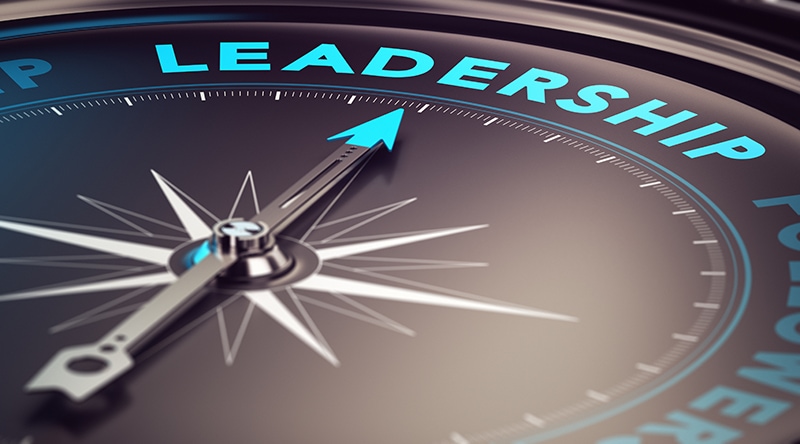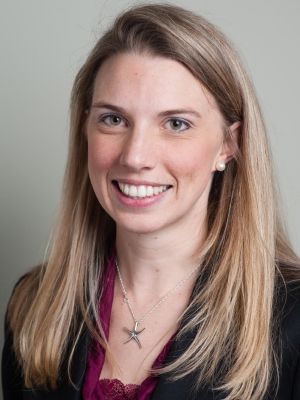Supply Chain Leader Interview: On a Quest to Rid the World of Junked Plastic

An entrepreneur at heart, Vanessa Coleman knows it takes 10 shots to score one goal. That’s why she takes risks, stays persistent, talks to people, and is a good listener–all characteristics that helped build Oceanworks’ success.

Vanessa Coleman CEO, Oceanworks
More than 11 million metric tons of plastic waste enter the oceans each year, says a 2022 United Nations report. Vanessa Coleman’s company, Los Angeles-based Oceanworks, seeks to halt that pollution. The company helps brand owners source recycled materials and lets them buy credits that fund the removal of plastic waste from the environment.
Oceanworks is the third venture Coleman has helped to launch since her days as an engineering grad student at MIT. “I’m an entrepreneur at heart,” she says. “I like creating things in the world that weren’t there before.”
Coleman gave us a look at how she leads Oceanworks and some of the company’s exciting recent activities.
IL: How and why did you come to co-found Oceanworks?
I’d been reading a lot about the challenges our oceans are facing. Also, through my travels—partly with Saha Global, the nonprofit I helped to found in Africa—I’d experienced the increase in plastic waste in the environment worldwide. In places where there used to be land or a beach, there’s now a mass of plastic waste. I wondered how to create solutions that might help accelerate the reclamation of that waste at scale.
Then one of my investors connected me with Rob Ianelli [now the company’s president], who had the original concept that ultimately turned into Oceanworks. He made sunglasses out of recycled ocean plastic and wanted to scale that concept with larger brands that had big supply chains. He and I started working together, and we built the company from there.
IL: What prompts manufacturers to work with your company?
Based on their own corporate goals or customer desires, manufacturers often look for more sustainable material streams. They need competitive costs, quality, and reliability at scale.
We provide access to feedstock that they wouldn’t be able to access otherwise. They can get traceability, allowing them to document claims about the origins of their recycled content. And they can count on us for reliability and capacity.
IL: What early experiences helped shape you as a leader?
I was first exposed to entrepreneurship through a graduate course at MIT called Energy Ventures. Engineering and business students formed teams to take forward a business idea. Once we developed some ideas, we started talking to potential customers. It shocked me that you could just call people on the phone and ask if they needed this idea you had. People are willing to take the time because they see value in bringing new things to their business.
If we talk to enough of them, we can understand how to put together technologies and business opportunities to make something real and new. That has defined much of my career.
IL: Is there something you have changed your mind about since the early days of your career?
I used to assume that people in big companies wanted to innovate. I still find that this is true of leaders. But it turns out that the bulk of most organizations, the rank and file, face incentives to do just the opposite. If you take a risk and it goes wrong, someone has to take the blame.
We have to be very aware of that at Oceanworks, because there’s a bias toward using fossil-based plastics in all products. When you introduce something new, you have to realize that the resistance you face often comes down to a desire not to be first, to let someone else make the mistakes.
IL: Do you try to make Oceanworks a safe place to take risks?
I do. We talk about the fact that you need to take 10 shots on a goal in order to score. Not everything you try will work, and that’s okay.
We need to be reliable on the operations side. But we also need to maintain an innovative mindset. If we deliver containers, store materials, and source the way everybody else has done it, we will never improve the status quo.
IL: What characteristics make you an effective leader?
I’m a good listener, both within the company and when I talk with customers and markets. I ask questions that elicit new information, hear where people are coming from, assimilate that information, and then show a bias for action.
I also think every good entrepreneur needs to be persistent. I like to joke that you have to stick around long enough to get lucky. Persistence and the ability to identify and capitalize on opportunities help me anchor and encourage the team as we grow in what is fundamentally a difficult space.
IL: What is Oceanworks doing that’s new and interesting?
We’re developing traceability technology to validate the recycled content in a company’s material stream and the origin of that material. We use a blockchain-based system to log all the information about materials into an immutable record. On top of that, we’ve built some visualization tools, so a user can follow the material through the supply chain.
IL: What have you read lately that has made an impression?
A Poison Like No Other: How Microplastics Corrupted Our Planet and Our Bodies by Matt Simon. It reinforced my sense that we’re already late to the game of getting plastics out of the environment.
IL: What advice would you give your 18-year-old self?
Find a way to work on things you’re really passionate about, because that creates a fun life. And push yourself to be one of the experts in things that you’re excited about working on.
IL: Outside of work, how do you like to spend your time?
I spend time with my three kids, who are five, two, and newborn. We love to go boating and skiing, and go to the beach and the mountains. I live on Cape Cod in the summer and Maui the rest of the year, so I get continuous exposure to the “why” behind what we do at Oceanworks.
Dinner Conversation
If Vanessa Coleman could have dinner with anyone, alive today or from history, she’d actually arrange three meals.
The first would be with former Vice President Al Gore. “He was fighting the battle against climate change early on,” she says. “He was making movies, trying to run for President, trying to enact policy. Now he’s an investor in the climate space. I’d like to hear his thoughts on what works, what is still needed, and how this might apply to the problems I’m working on.”
Dinner companion number two would be environmentalist and author Rachel Carson. And number three would be the social media influencer known as MrBeast. “He has built a huge following by doing big, interesting stunts,” Coleman says.
For instance, he has raised millions of dollars for removing plastic waste from the oceans. “I would be intrigued to hear how he built his following and influence in this new type of media,” she says.
